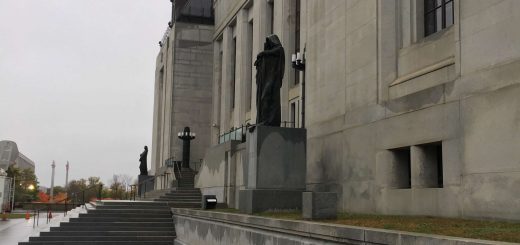R. v. Rhyason : Affirmed – Evidence of mere consumption is insufficient to demand breath samples
On July 27, the SCC released their decision in R. v. Rhyason, 2007 SCC 39. On appeal from a 2-1 split decision at the Alberta Court of Appeal, the Supreme Court justices themselves split 5-4 in favor of upholding the trial conviction of a man found guilty of impaired driving causing death.
On the night of July 30, 2004, Mr. Rhyason consumed alcohol at several bars. In the early morning of the next day, he drove his car and struck a pedestrian who died at the scene. The majority unsympathetically only notes that Mr. Rhyason had “bloodshot eyes, an unusually blank stare, blinked slowly, was shaking, and had an odour of alcohol on his breath.” (para. 3). Additionally, Mr. Rhyason “was polite but upset, showed no balance or slurring problems, and did not take long to answer questions.” (ABCA decision, para. 9). Based on his observations, the arresting officer demanded a breath sample from Mr. Rhyason.
At trial, Mr. Rhyason raised the argument that the breath sample should be excluded from evidence because it was obtained without the requisite “reasonable and probable grounds”, as required in s. 254(3) of the Criminal Code. That is, because the officer’s observations of Rhyason could be consistent with consumption and/or shock, but not necessarily with impairment, the required grounds for believing an offence had been committed were not met. In rejecting this argument, the trial judge said the following, which became the crux of review at both the appellate and Supreme Court levels:
There is no strict requirement that the officer deciding to arrest or demand a breath sample have evidence of impairment (as distinct from, and additional to, mere consumption) before proceeding with the arrest or demand. Therefore, it is clear that the argument of the Accused, to the effect that the officer must have evidence of impairment as well as consumption, fails.
While the entire court is unanimous in saying that mere evidence of consumption is not sufficient for demanding a breath sample, they come to different conclusions on whether the above passage was truly indicative of the trial judge’s view of the law.
The majority feels that even though the particular passage taken on its own is the wrong test, on the whole, the “trial judge himself noted that it was a “combination of facts” [(deceased person at accident site, smell of odour on breath, and minor evidence of consumption)] that formed the reasonable and probable grounds” (para. 17); not evidence of mere consumption alone.
In contrast, the dissent felt that this passage was sufficiently faulty as to influence the trial judge, and that absent a clear statement of the test, it allowed him to give undue weight to the other facts despite their not having proper evidential basis. At para. 28, Charron J. writes,
Had Constable Stevens [the arresting officer] given evidence about his observations of the scene of the accident, and relied on inferences drawn from those observations as part of his basis for making his demand, the situation might have been different. But Constable Stevens nowhere said that an “accident with no other obvious cause” formed part of his grounds for believing that an offence had been committed…What is at issue here are the officer’s reasonable and probable grounds at the time of making the demand, not the ex post facto inferences that can be drawn from the evidence at trial.
As such, the dissent states that even though factors outside of consumption and impairment could influence an officer’s belief, this did not happen here. Thus, they would have set aside the conviction and ordered a new trial.
So, what to take from this? The majority would indicate that though mere consumption is insufficient to demand a breath sample, they also did not say that impairment was a requirement. Instead, they said that mere consumption plus something else may be sufficient to meet the ‘reasonable and probable grounds’ that is necessary to obtain a breath sample. At para. 19, Abella J. explains the implications of her judgment,
This is not to suggest that consumption plus an unexplained accident always generates reasonable and probable grounds or, conversely, that it never does. What is important is that determining whether there are reasonable and probable grounds is a fact-based exercise dependent upon the circumstances of the case.






Join the conversation